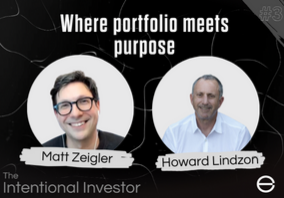Quitters
To learn more about Epsilon Theory and be notified when we release new content sign up here. You’ll receive an email every week and your information will never be shared with anyone else.
Continue the discussion at the Epsilon Theory Forum
The Latest From Epsilon Theory
This commentary is being provided to you as general information only and should not be taken as investment advice. The opinions expressed in these materials represent the personal views of the author(s). It is not investment research or a research recommendation, as it does not constitute substantive research or analysis. Any action that you take as a result of information contained in this document is ultimately your responsibility. Epsilon Theory will not accept liability for any loss or damage, including without limitation to any loss of profit, which may arise directly or indirectly from use of or reliance on such information. Consult your investment advisor before making any investment decisions. It must be noted, that no one can accurately predict the future of the market with certainty or guarantee future investment performance. Past performance is not a guarantee of future results.
Statements in this communication are forward-looking statements. The forward-looking statements and other views expressed herein are as of the date of this publication. Actual future results or occurrences may differ significantly from those anticipated in any forward-looking statements, and there is no guarantee that any predictions will come to pass. The views expressed herein are subject to change at any time, due to numerous market and other factors. Epsilon Theory disclaims any obligation to update publicly or revise any forward-looking statements or views expressed herein. This information is neither an offer to sell nor a solicitation of any offer to buy any securities. This commentary has been prepared without regard to the individual financial circumstances and objectives of persons who receive it. Epsilon Theory recommends that investors independently evaluate particular investments and strategies, and encourages investors to seek the advice of a financial advisor. The appropriateness of a particular investment or strategy will depend on an investor’s individual circumstances and objectives.









Regarding the chart in the appendix section titled The Impact of CEO Turnover on Equity Volatility, if you look carefully at the chart x-axis you’ll see that T-0, the event date, is in the middle (not the extreme left as may be assumed), as such, the chart in fact suggests that company volatility increases on average in the run-up to the CEO change, peaks around the time of the change, and then gradually decreases over the following two years, at which point it has fully reverted to the same level as the control population. I would suggest that the chart does not imply that “CEO changes increase stock volatility” - what the chart shows is that CEO changes happen when the stock is already more volatile than is typical, and this excess volatility persists for 24 months on average.
(I would also be suspicious of the odd looking artefact in the chart for the control population, showing a drop in vol at that +26 month point)
Agree on all points, Tom.
Yes great point thanks Tom. Probably efficient market with some news leaking out early (Erin Callan rumors were swirling well before she got fired) … and information accruing to insiders or connected people as well.